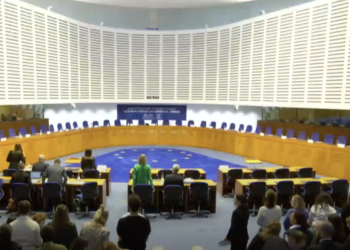On 14 December 2023, the European Court will announce its ruling for German teachers who went on strike when such a strike was not allowed under Germany’s laws.
In 2009 and 2010, two teachers in Germany did not turn up to work for between one hour and three days, demanding an improvement in learning and working conditions. They were subsequently subjected to disciplinary sanctions for having been on strike.
They challenged the decisions against them in administrative courts and the Federal Constitutional Court of Germany to no avail. The Court held that the Basic Law banned civil servants from going on strike, which it considered compatible with the European Convention of Human Rights (ECHR) and the European Court’s case-law.
They lodged the application with the European Court of Human Rights (ECtHR) in 2018. Relying on freedom of assembly and association and prohibition of discrimination, they complain that the ban on teachers with civil-servant status from striking was not prescribed by law, was disproportionate and, compared to teachers employed on a contractual basis, discriminatory.
In March 2023, the European Court of Human Rights held a public hearing in Strasbourg (watch the hearing).
Seventeen judges heard the case. They are the Court’s president Síofra O’Leary (Ireland), judges Georges Ravarani (Luxembourg), Marko Bošnjak (Slovenia), Gabriele Kucsko-Stadlmayer (Austria), Pere Pastor Vilanova (Andorra), Arnfinn Bårdsen (Norway), Faris Vehabović (Bosnia and Herzegovina) Egidijus Kūris (Lithuania), Stéphanie Mourou-Vikström (Monaco), Alena Poláčková (Slovakia), Georgios A. Serghides (Cyprus), Tim Eicke (the United Kingdom), Lətif Hüseynov (Azerbaijan), Raffaele Sabato (Italy), Anja Seibert-Fohr (Germany), Diana Sârcu (the Republic of Moldova), and Mykola Gnatovskyy (Ukraine), and three substitute judges Péter Paczolay (Hungary), Branko Lubarda (Serbia), abd Peeter Roosma (Estonia).






